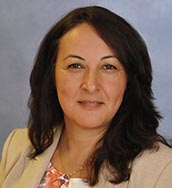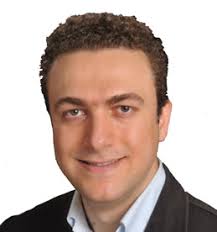Tamerler and Ozcan named AAAS Fellow

American Association for the Advancement of Science announced its 2018 class of 416 new fellows, which included Candan Tamerler and Aydogan Ozcan, on November 27, 2018. The honor recognizes major efforts that have, scientifically or socially, advanced science or its applications. New AAAS Fellows will be presented with an official certificate and pin at the organization’s annual meeting in February in Washington, D.C.
Tamerler was nominated for distinguished contributions to bio-enabled approaches for the development of regenerative biomaterials and leadership in the engineering of peptides and proteins to modulate materials/tissue interfacial reactions.
Tamerler is Wesley G. Cramer Professor, Mechanical Engineering; Professor, Bioengineering; and Director, Biomimetic Materials, Institute for Bioengineering Research at the University of Kansas.
Tamerler expertise covers bionanotechnology, molecular biomimetics, synthetic biology, biological fabrication of materials and systems as well as the implementation of the engineered hybrid nanomaterials systems in diverse technological areas. Her inspiration has been to decode the elegance contained in Nature`s highly organized, yet functional structures and systems and to develop the genetic code for designing bio-enabled materials using molecular recognition, self-assembly and self-organization principles in an integrated fashion combining experimental and computational tools. Combining the molecular biology to materials science building upon her unique expertise in both fields, her research areas focus on the engineering of multi-functional biomolecular systems that provide tunability at the bio-material interfaces that will lead to assembly, synthesis and biofabrication of materials with technological and medical interest. Application areas cover developing sensing and monitoring modalities, hybrid thin film and molecular coatings, cell targeting nanoprobes, next-generation biomaterials for restorative and regenerative medicine.
 Ozcan was cited for his “distinguished contributions to photonics research and technology development on computational imaging, sensing and diagnostics systems, impacting telemedicine and global health applications.”
Ozcan was cited for his “distinguished contributions to photonics research and technology development on computational imaging, sensing and diagnostics systems, impacting telemedicine and global health applications.”
Ozcan is the associate director of the California NanoSystems Institute at UCLA and holds a faculty appointment in the Department of Surgery at the Geffen School of Medicine. He is also a Howard Hughes Medical Institute Professor.
Ozcan's recent research has created a new technique that uses deep learning — a type of artificial intelligence in which machines “learn” through data patterns — to transform lower-resolution fluorescence microscopy images into super-resolution. The framework takes images from a simple, inexpensive microscope and produces images that mimic those from more advanced and expensive ones.
The scientists’ work could make advanced microscopy more readily accessible to researchers and open paths of discovery throughout science and engineering.